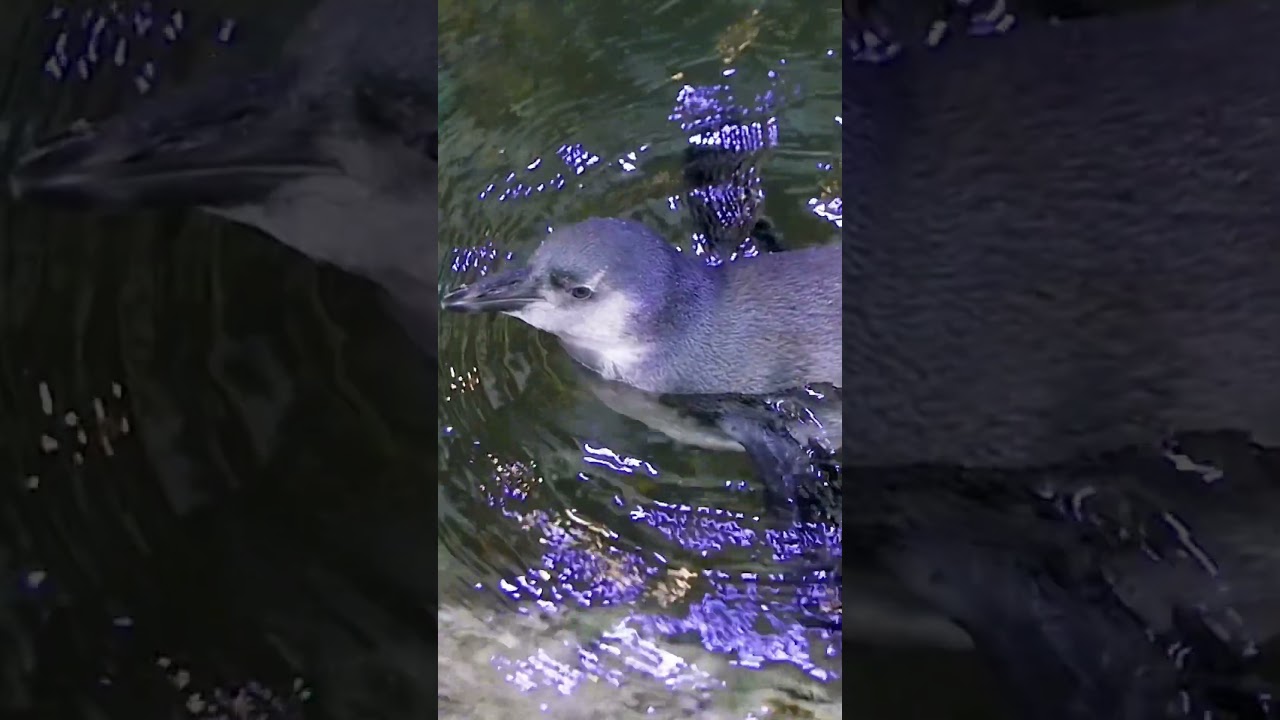– Integrating African penguin chicks Gouda (blue band) and Calypso (red band) into the main colony highlights successful breeding and conservation efforts.
– The significance of monitoring and banding in tracking the health and behavior of African penguins at zoos.
– The role of zoos in wildlife conservation, education, and research, particularly in the case of endangered species like the African penguin.
– Challenges African penguin populations face in the wild, including habitat loss, climate change, and overfishing, and how conservation programs address these issues.
African penguin chicks Gouda, adorned with a blue band, and Calypso, wearing a red band, recently joined the main colony, signaling a hopeful note for the species’ conservation. This event at the zoo is not just a celebratory milestone but also a testament to the concerted efforts in breeding, wildlife conservation, and zoo management. The arrival of these chicks into the broader colony illustrates a crucial step in their developmental journey, providing them with the opportunity to socialize, learn essential survival skills, and become integral members of their community.
Banding, a common practice for monitoring birds, plays a pivotal role in the conservation efforts of zoos and wildlife management organizations. By attaching a small, colored band like the ones Gouda and Calypso wear, scientists and conservationists can track individual animals’ growth, health, migration patterns, and social behaviors. This practice is particularly invaluable for species at risk of extinction, such as the African penguin, enabling targeted conservation strategies and interventions when necessary.
Zoos have evolved from mere venues for public entertainment to front-line institutions in wildlife conservation and environmental education. By simulating natural habitats and engaging in carefully managed breeding programs, zoos contribute to preserving species that are dwindling in the wild. The case of African penguin chicks Gouda and Calypso exemplifies how zoos accomplish this mission. Through educational programs centered on these charismatic creatures, zoos raise awareness about the plight of their wild counterparts and the broader issues of biodiversity loss and environmental degradation. Furthermore, research conducted in zoo settings provides valuable insights into animal behavior, genetics, and health, contributing to our overall knowledge and informing conservation actions in natural habitats.
African penguins are facing severe threats in the wild, with their numbers declining steeply over the past few decades. Habitat destruction, climate-induced shifts in prey availability, oil spills, and direct human disturbance are among the critical challenges they face. Observing African penguin chicks like Gouda and Calypso thrive in a zoo setting underscores the urgency of addressing these challenges. Conservation programs that include habitat restoration, establishing marine protected areas, and mitigating human impacts are vital to the survival of this species. Zoos often participate in or support these programs, leveraging their expertise in animal care and breeding to aid in the restoration of wild populations.
The integration of Gouda and Calypso into the main colony serves as a moment of celebration and a call to action. It highlights the delicate balance between conservation success and the ongoing threats African penguins face. This event invites zoo visitors and the general public to reflect on their relationship with the natural world and the steps each individual can take to preserve it. From supporting sustainable seafood choices to reducing plastic waste, small actions can contribute to the well-being of African penguins and countless other species that share our planet.
African penguin chicks Gouda and Calypso joining the main colony is more than a heartwarming story; it is a vibrant example of the positive impact of conservation efforts. As they grow and thrive in their community, they embody the hope for their species’ future. These efforts are a reminder of the interconnectedness of all living beings and the responsibility to protect and cherish the diversity of life on Earth. Through collective action and sustained commitment to conservation, it is possible to reverse the tide for the African penguin and ensure that future generations inherit a world rich in biodiversity.
*****
Source Description
[facility name] is part of the not-for-profit Audubon Nature Institute in New Orleans, led by CEO Ron Forman.


